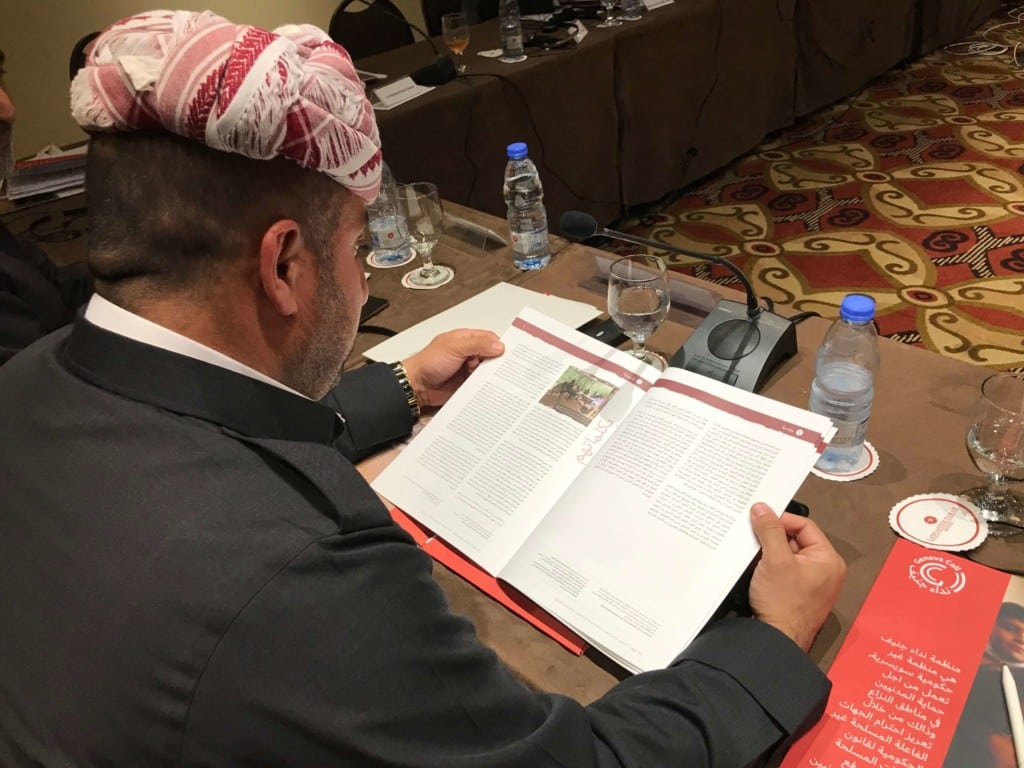
Religious scholars’ meeting in Beirut on Human Rights Day
18 décembre 2019
On International Human Rights Day (December 10th), 16 prominent religious scholars from Lebanon, Syria, Bahrain, Iraq and Iran representing multiple confessions, namely Christian, Druze, Yazidi, Sunni and Shia, adopted a joint statement on the protection of civilians in armed conflict. An event entitled Religious Leaders: Positive Practices towards increased Protection of Civilians in Armed Conflict was organized by Geneva Call’s regional office in Beirut. While presenting a similar statement on the protection of internally displaced people adopted in Najaf by Shia religious scholars earlier this year, Sheikh Youssef Al-Nasri, Chief of the National Council of Religions in Iraq, welcomed the opportunity this gathering offered to “generate a unified humanitarian stance among different religions.”
“Religious scholars play a prominent role in upholding moral rules in society” said Amal Van Leeuwen Hamidallah, Head of Near and Middle East Region at Geneva Call in her opening speech. In situations of armed conflict, when accountability and compliance with the laws become increasingly hampered, religious scholars can influence Armed State and Non-State Actors to internalize and respect religious values as well as international humanitarian norms.
Prior to the adoption of the statement, the participants engaged in a drawn-out and in-depth exchange around real-life scenarios and the duty of religious scholars to positively influence the conduct of armed actors in armed conflict. “The chaos caused by violence, nowadays, is masking the weapon of knowledge spread by those religious scholars” said Sheikh Mohammad Jaafar Al-Mohajer, Head of the Baha’ Al-Din International Centre for Research Studies and Training. Thus, “taking action is key and this is where Geneva Call should intervene.”
The head of the Bahrain Interfaith Center, Sheikh Maytham al Salman, warned against the “use of religious platforms to incite hatred towards others who are different religiously, politically, socially and culturally.” Religious and community leaders should address the cultural and social phenomenon of growing extremism in the region and take practical measures to move past the well-known discourse towards more effective action on the ground.
Sheikh Bahzad Sleiman Saifo, Head of Yazidi Preachers and member of the Supreme Yazidi Spiritual Council, highlighted the plight of Yazidis seeing ultimate protection solely under the law. Thus, the meeting aimed to address how religious scholars’ efforts can be directed towards enhancing the protection of civilians and communities affected by armed conflict. Recommendations and practical steps were shared at the end of the meeting and will be further developed and consolidated through continued efforts with relevant actors.